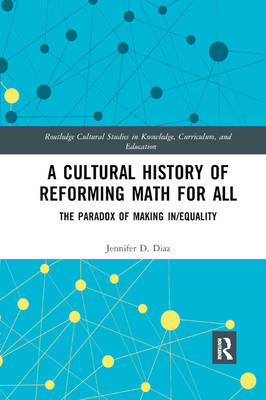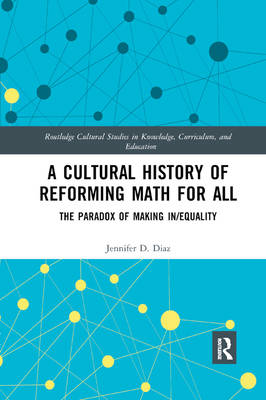
- Afhalen na 1 uur in een winkel met voorraad
- Gratis thuislevering in België vanaf € 30
- Ruim aanbod met 7 miljoen producten
- Afhalen na 1 uur in een winkel met voorraad
- Gratis thuislevering in België vanaf € 30
- Ruim aanbod met 7 miljoen producten
Omschrijving
While many accept that math is a universal, culturally indifferent subject in school, this book demonstrates that this is anything but true. Building off of a historically conscious understanding of school reform, Diaz makes the case that the language of mathematics, and the symbols through which it is communicated, is not merely about the alleged cultural indifference of mathematical thinking; rather, mathematical teaching relates to historical, cultural, political, and social understandings of equality that order who the child is and should be. Focusing on elementary math for all education reforms in America since the mid-twentieth century, Diaz offers an alternative way of thinking about the subject that recognizes the historical making of contemporary notions of inequality and difference.
Specificaties
Betrokkenen
- Auteur(s):
- Uitgeverij:
Inhoud
- Aantal bladzijden:
- 136
- Taal:
- Engels
- Reeks:
Eigenschappen
- Productcode (EAN):
- 9780367877125
- Verschijningsdatum:
- 22/09/2010
- Uitvoering:
- Paperback
- Formaat:
- Trade paperback (VS)
- Afmetingen:
- 152 mm x 226 mm
- Gewicht:
- 181 g

Alleen bij Standaard Boekhandel
Beoordelingen
We publiceren alleen reviews die voldoen aan de voorwaarden voor reviews. Bekijk onze voorwaarden voor reviews.











